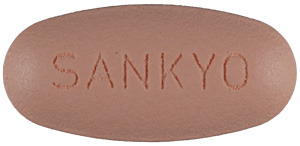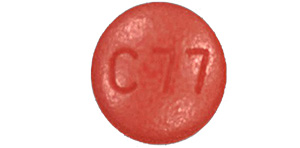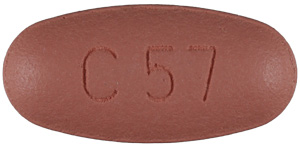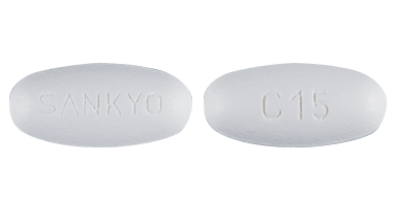Benicar Lawsuits
People who took Benicar filed lawsuits claiming manufacturers failed to warn the drug could cause serious gastrointestinal problems. In 2017, Benicar manufacturer Daiichi Sankyo and co-promoter Forest Laboratories agreed to a $300 million settlement to compensate over 2,000 patients for their injuries.
Our content is developed and backed by respected legal, medical and scientific experts. More than 30 contributors, including product liability attorneys and board-certified physicians, have reviewed our website to ensure it’s medically sound and legally accurate.
legal help when you need it most.
Drugwatch has provided people injured by harmful drugs and devices with reliable answers and experienced legal help since 2009. Brought to you by The Wilson Firm LLP, we've pursued justice for more than 20,000 families and secured $324 million in settlements and verdicts against negligent manufacturers.
More than 30 contributors, including mass tort attorneys and board-certified doctors, have reviewed our website and added their unique perspectives to ensure you get the most updated and highest quality information.
Drugwatch.com is AACI-certified as a trusted medical content website and is produced by lawyers, a patient advocate and award-winning journalists whose affiliations include the American Bar Association and the American Medical Writers Association.
About Drugwatch.com
- 15+ Years of Advocacy
- $324 Million Recovered for Clients
- 20,000 Families Helped
- A+ BBB Rating
- 4.9 Stars from Google Reviews
Testimonials
I found Drugwatch to be very helpful with finding the right lawyers. We had the opportunity to share our story as well, so that more people can be aware of NEC. We are forever grateful for them.
- Legally reviewed by Julie Lawson Timmer, Esquire
- Last update: April 15, 2025
- Est. Read Time: 5 min read
Benicar Lawsuit Overview
Lawsuits regarding the blood pressure medication Benicar claimed that the manufacturer, Daiichi Sankyo, failed to warn of the risks of sprue-like enteropathy. This is a disease known to cause severe diarrhea and weight loss.
People filed the first federal Benicar lawsuits in 2014 after the Food and Drug Administration (FDA) warned that drugs containing olmesartan, the active ingredient in Benicar, could cause sprue-like enteropathy. These lawsuits were consolidated into multidistrict litigation (MDL), a method of expediting trials by grouping several similar cases under one court.
Other drugs included in this MDL, No. 2606, were Benicar HCT, Azor and Tribenzor. Drugwatch’s partners are not currently taking these cases.
Latest Benicar Lawsuit Updates
The Benicar lawsuits were handled in New Jersey through an MDL, but as of February 2026, there is no activity in this litigation. Most cases have been resolved by settlements or dismissal.
On Sept. 23, 2019, Judge Robert B. Kugler entered an order to establish a qualified settlement fund. This is a court-ordered holding account for the defendant’s settlement funds. Once the litigation is resolved, a third party will distribute this money to the plaintiffs.
This gives both parties more time to settle the details and submit all paperwork. It also allows the defendant to take an immediate tax deduction with regard to the settlement amount paid into the fund and allows plaintiffs to defer any income tax liability related to their receipt of settlement monies until they receive their portion of the settlement.
When a judge orders an established qualified settlement, they typically dismiss the defendant with prejudice. This means the plaintiff cannot file the same claim in the same court — the case is permanently closed in that court. When a case is dismissed without prejudice, the plaintiff can amend their complaint and refile in the same court.
The MDL is now closed.
- Causes of Action
- Defective Design Failure to Warn Negligence
- Failure to Warn
- Defendants didn’t provide information about gastrointestinal side effects Defendants sold and aggressively promoted Benicar despite knowing the side effects
- FDA Findings
- In July 2013, the FDA warned that Olmesartan can cause sprue-like enteropathy Enteropathy may develop months or years after taking olmesartan Sprue-like enteropathy wasn’t found in other drugs of the same class
Why People Filed Benicar Lawsuits
People filed Benicar lawsuits because they claimed the drug caused serious gastrointestinal problems, and Daiichi Sankyo never warned about the risk. Lawsuits also alleged defective design, negligence and fraud.
“Defendants’ conduct is motivated by greed and the intentional decision to value profits over the safety and wellbeing of the consumers of Olmesartan products.”
According to this MDL’s federal master complaint, which is a document that consolidates common allegations, plaintiffs alleged defendants knew or should have known that drugs containing olmesartan could cause a side effect known as olmesartan-associated enteropathy (“OAE”). OAE is the name for sprue-like enteropathy that was caused by olmesartan use.
Accusations in Benicar Lawsuits
According to the master complaint, Daiichi spent $1 billion to promote Benicar and Benicar HCT between 2002 and 2008. The marketing materials omitted serious risks, and the drugs became top sellers.
Lawsuits cited the FDA’s 2006 warning to Sankyo, which stated its promotional materials violated federal regulations. At the time, Sankyo had not yet merged with Daiichi.
According to the lawsuits, the FDA ordered Daiichi Sankyo and Forest to stop making claims that Benicar is superior to other drugs.
Among the FDA’s corrective measure was discontinuing the use of approximately 50 promotional pieces dating back to 2002. The FDA also told the companies to provide corrective messages to physicians who had received the materials.
Benicar Lawsuit Case Study: Williams vs. Monsanto
George Williams was one of the first plaintiffs to file a suit against Daiichi Sankyo over injuries from Benicar. He and his wife filed their lawsuit in New Jersey in 2014.
Williams took Benicar as directed after his doctor prescribed it. Although he took the recommended dosage, he developed gastrointestinal problems.
Williams had over 10 hospital stays, which totaled over 100 days over four years. He had severe diarrhea, dehydration, weight loss, nausea, malnutrition and dehydration. As a result, he suffered a compression fracture and developed cataracts. Williams continued to use a feeding tube for nutrition. Physicians didn’t know about the association between Benicar and Williams’ injuries.
Compensatory damages, treble damages, punitive damages and attorney costs
Injuries in Benicar Lawsuits
Thousands of patients who filed lawsuits over Benicar, Benicar HCT, Tribenzor or Azor claimed the drugs caused gastrointestinal injuries.
These injuries included intestinal diseases such as sprue-like enteropathy and microscopic colitis. Colitis is characterized by cramping and chronic, watery, non-bloody diarrhea due to colon or large intestine inflammation.
Microscopic colitis and sprue-like enteropathy have many overlapping symptoms, and both conditions can occur simultaneously.
- Abdominal and gastrointestinal pain
- Chronic diarrhea
- Colitis and gastritis
- Dehydration
- Inflammation
- Malnutrition
- Sprue-like enteropathy
- Villous atrophy
- Vomiting
- Weight loss
Villous atrophy, another alleged injury, is when the walls of the small intestines erode, making it difficult to absorb nutrients from food.
Other plaintiffs alleged the drugs caused them to develop collagenous colitis and lymphocytic colitis, which are subcategories of microscopic colitis.



Benicar Settlement
In the 2017 Benicar settlement, Daiichi Sankyo required at least 95 percent of the plaintiffs to participate. Initially, all but five plaintiffs opted into the settlement, and the funding threshold was met.
Daiichi Sankyo denied liability for the plaintiffs’ injuries, saying, “The claims made in this litigation are without merit.”
“Daiichi Sankyo is committed to the health and safety of all patients taking our medications,” Executive Chairman and President Glenn Gormley said in a statement.
“We believe a settlement is in the best interest of all and will allow us to continue our focus on bringing to market innovative medicines that help people live healthy and meaningful lives.”
Kickback Settlement
Older lawsuits from 2014 described a federal whistleblower case that resulted in a $39 million payment by Daiichi Sankyo to Medicaid programs. The U.S. Department of Justice accused Daiichi of paying kickbacks to physicians in the form of speaker fees in exchange for the physicians speaking at speaker programs such as Daiichi’s Physician Organization and Discussion programs. Such payments violate the Anti-Kickback Statute, a criminal law that prohibits (among other things) the giving anything of value to physicians to induce them to prescribe a particular drug.
The kickback allegations were made under a case brought against Daiichi under the False Claims Act, a civil law that allows private parties to sue on behalf of the government, and to receive a portion of the government’s recovery from the defendant. In this case, it was a former Daiichi sales rep who filed claims under the False Claims Act. The sales rep’s portion of the recovery was $6.1 million.
Speaker programs are company-sponsored events in which health care providers speak to other providers about topics such as drugs, medical devices or diseases.
Though intended to be educational, these programs can be grounds for bribery. Here, the company allegedly offered lucrative speaker fees to physicians who met its sales target by prescribing a sufficient number of Daiichi Sankyo products, including Benicar.
As part of the settlement, Daiichi signed a corporate integrity agreement. The agreement required the company to implement reforms for five years.
Editor Lindsay Donaldson contributed to this article.
Calling this number connects you with a Drugwatch.com representative. We will direct you to one of our trusted legal partners for a free case review.
Drugwatch.com's trusted legal partners support the organization's mission to keep people safe from dangerous drugs and medical devices. For more information, visit our partners page.




